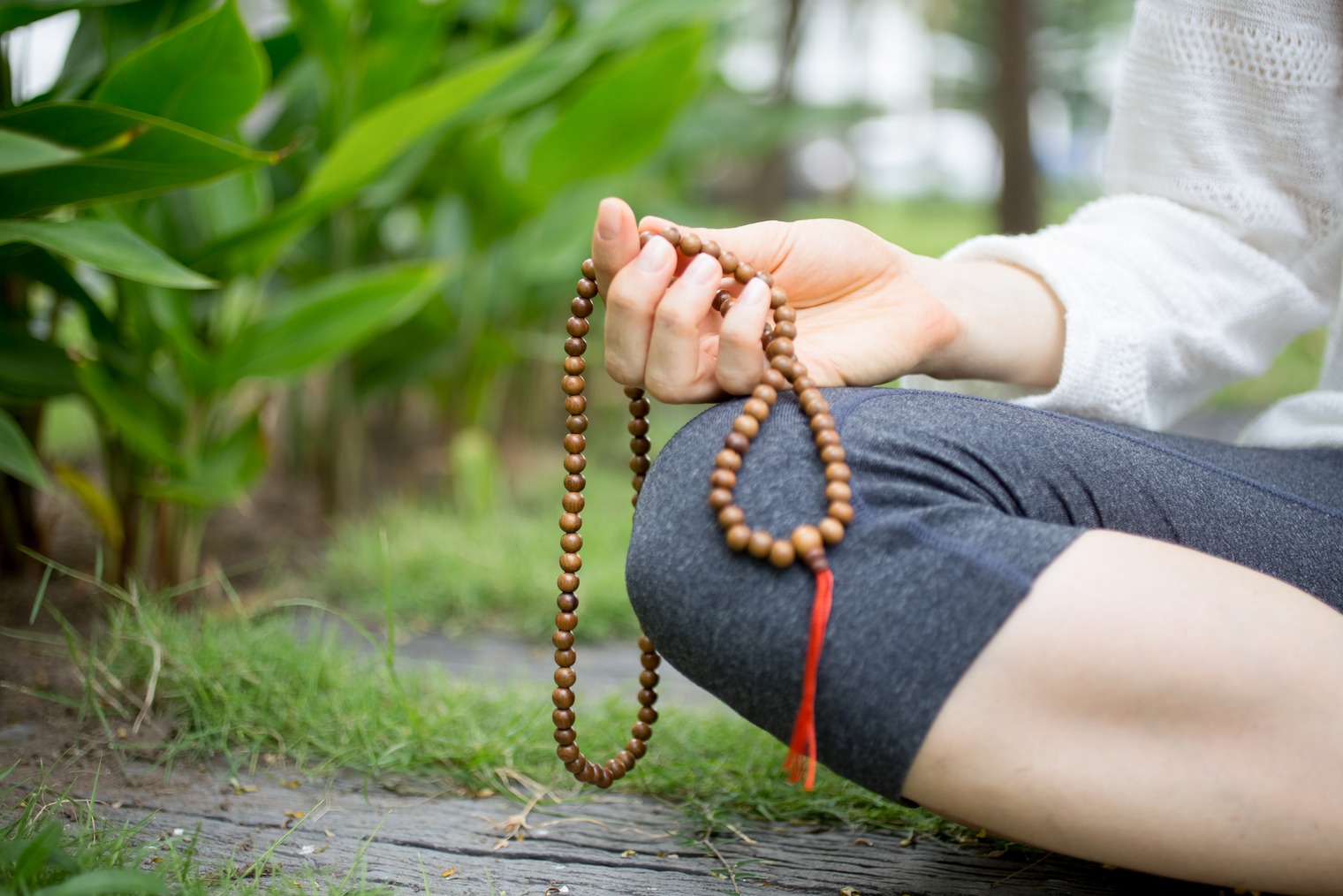In today's fast-paced world, amidst the chaos and constant distractions, finding moments of peace and tranquility can be a challenge. However, for centuries, people have turned to meditation as a powerful tool for cultivating inner calm and mental clarity. At the heart of this ancient practice lies the Bodhi Mala, deeply revered in Tibetan and Buddhist culture. Its smooth, polished beads and intricate craftsmanship serve as a tangible reminder of timeless wisdom, guiding practitioners on a journey inward to discover inner peace and enlightenment. Through the rhythmic repetition of mantras, the Bodhi Mala becomes a conduit for transcending worldly concerns and accessing a state of inner harmony and balance - a cherished companion on the path to self-discovery and spiritual growth.
Understanding the Bodhi Mala

The Bodhi Mala, also known as Bodhi beads or Bodhi seeds, is a string of prayer beads traditionally used in Buddhist meditation practices. Crafted from the seeds of the Bodhi tree, also known as the "tree of enlightenment," each bead carries profound symbolism rooted in the teachings of Siddhartha Gautam, the Buddha. Under the sheltering canopy of the Bodhi tree, Siddhartha attained enlightenment, transcending the cycle of suffering and gaining profound insight into the nature of existence.
This vital moment in Buddhist history steeps the Bodhi tree with immense spiritual significance, symbolizing the awakening of consciousness, the light of enlightenment, and the potential for boundless spiritual growth. As such, the Bodhi Mala becomes more than just a tool for meditation-it becomes a scared conduit for connecting with the essence of enlightenment and embodying the path towards spiritual awakening.
Why Bodhi is Popular in Tibetan and Buddhist Culture

In Tibetan Buddhism, the reverence for the Bodhi Mala extends beyond its practical use in meditation counting. It symbolizes a profound connection to the teachings of the Buddha and serves as a physical representation of the practitioner's dedication to the path of enlightenment. As the fingers move along the beads, each count becomes a moment of devotion, a step closer to spiritual realization, and a reaffirmation of one's commitment to inner transformation.
Furthermore, the Bodhi Mala holds a special place in the rituals and ceremonies of Tibetan Buddhist communities, where it is often passed down through generations as a scared heirloom. Its presence during meditation sessions or religious gatherings fosters a sense of unity and collective spiritual endeavor, reminding practitioners of their interrelation with each other and the universal quest for enlightenment. Thus, beyond its practical function, the Bodhi Mala serves as a symbol of continuity, tradition, and the enduring wisdom of the Dharma.
How to use Bodhi Mala for Meditation

Using a Bodhi Mala for meditation is a simple yet profound practice that can deepen your spiritual connection and enhance your meditation experience. Here's a step-by-step guide on how to incorporate Bodhi Mala into your meditation routine:
1. Set Your Intention: Before you begin your meditation, take a moment to set your intention. Reflect on what you hope to achieve through your practice-whether it's inner peace, clarity of mind, or spiritual growth.
2. Choose Your Mantra: Select a mantra that resonated with you or aligns with your intention. It could be a traditional Buddhist mantra like "Om Mani Padme Hum" or a simple affirmation like "I am peace."
3. Hold the Bodhi Mala: Take the Bodhi Mala in your dominant hand and let it rest between your middle finger and thumb. Begin at the guru bead-the larger bead at the center of the Mala-located just above the tassel.
4. Recite Your Mantra: With each repetition of your mantra, gently move your fingers to the next bead on the Bodhi Mala. Continue this process until you have completed a full round of recitations, ending back at the guru bead.
5. Pause and Reflect: Take a moment to pause and reflect on your meditation experience. Notice any thoughts, sensations, or emotions that arise without judgment, and gently guide your focus back to your breath or mantra.
6. Repeat as Desired: You can repeat the process as many times as you like, allowing yourself to sink deeper into a state of meditation with each round.
Additional Insights on Bodhi Mala

Beyond its role in meditation, the Bodhi Mala holds various symbolic meanings and practical benefits that you may find intriguing:
1. Symbol of Enlightenment: The Bodhi Mala serves as a tangible reminder of the Buddha's enlightenment and the potential for awakening that resides within each of us.
2. Natural Beauty: Bodhi seeds are prized for their natural beauty, with each seed bearing a unique pattern and texture. Many people appreciate the aesthetic appeal of Bodhi Malas as wearable art pieces.
3. Grounding Energy: The earthy energy of Bodhi seeds is believed to have grounding properties, helping to anchor the wearer in the present moment and promote a sense of stability and security.
4. Ethical and Sustainable: Bodhi seeds are harvested from the Bodhi tree without causing harm to the tree itself, making them a sustainable and environmentally friendly choice for conscious consumers.
Conclusion
As you weave the Bodhi Mala through your fingers, you enter on a journey of self-exploration and contemplation. Each bead becomes a point of focus, drawing your attention inward and quieting the chatter of the mind. With each repetition of your chosen mantra, you align yourself with the rhythms of the universe, harmonizing your inner being with the greater cosmic flow.
Moreover, the Bodhi Mala serves as a reminder of the briefness of life and the interrelation of all things. Just as the Bodhi tree sheds its leaves to make way for new growth, so too can you release old patterns and attachments, allowing for personal evolution and spiritual renewal. In this way, the Bodhi Mala becomes not only a tool for meditation but also a metaphor for the repetitive nature of existence and the endless possibilities for growth and transformation. Allow its gentle presence to guide you as you navigate the complexities of life, finding solace, inspiration, and ultimately, a deeper sense of purpose and fulfillment.

